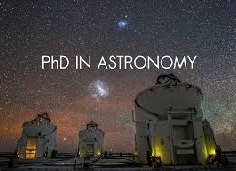
Studying celestial bodies, cosmic phenomena, and the fundamental physics of the cosmos is the focus of a Ph.D. program in astrophysics, which is research-oriented. The curriculum, which usually lasts 3-5 years, blends theoretical work with practical research in fields such as high-energy astrophysics, galaxy formation, black holes, cosmology, and stellar evolution. Students explore the basic forces of nature using sophisticated computational techniques, observatories, and simulations. A master's degree in physics or a similar discipline is often required for admission. Program graduates go on to work in academia, research facilities, and space organizations, furthering our knowledge of the cosmos overall.